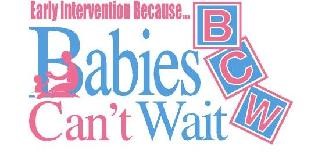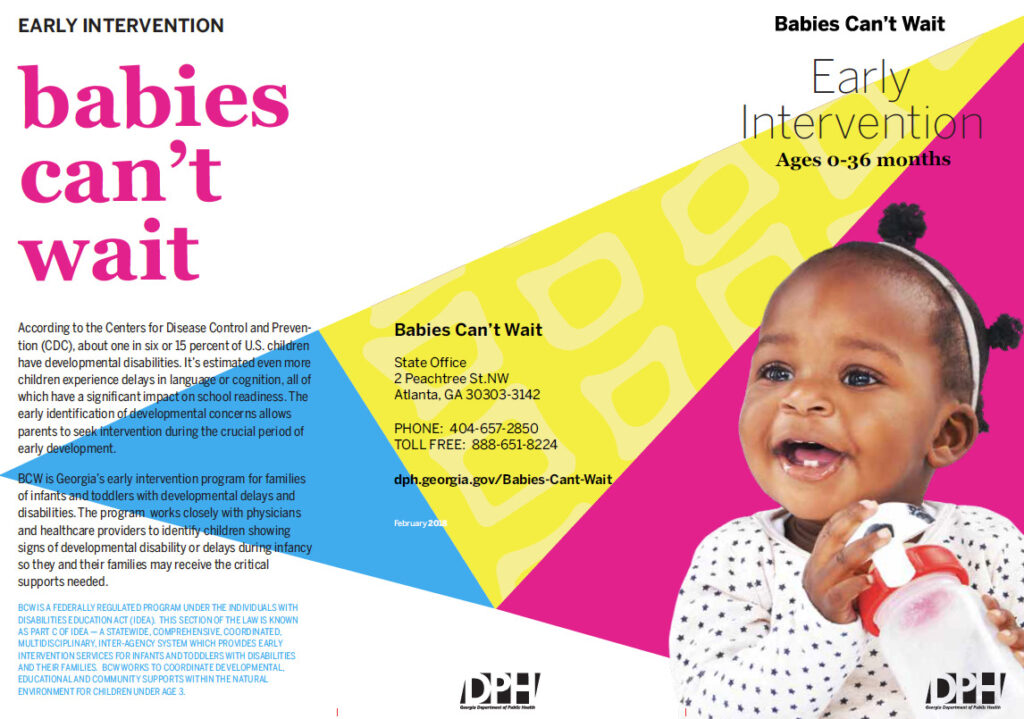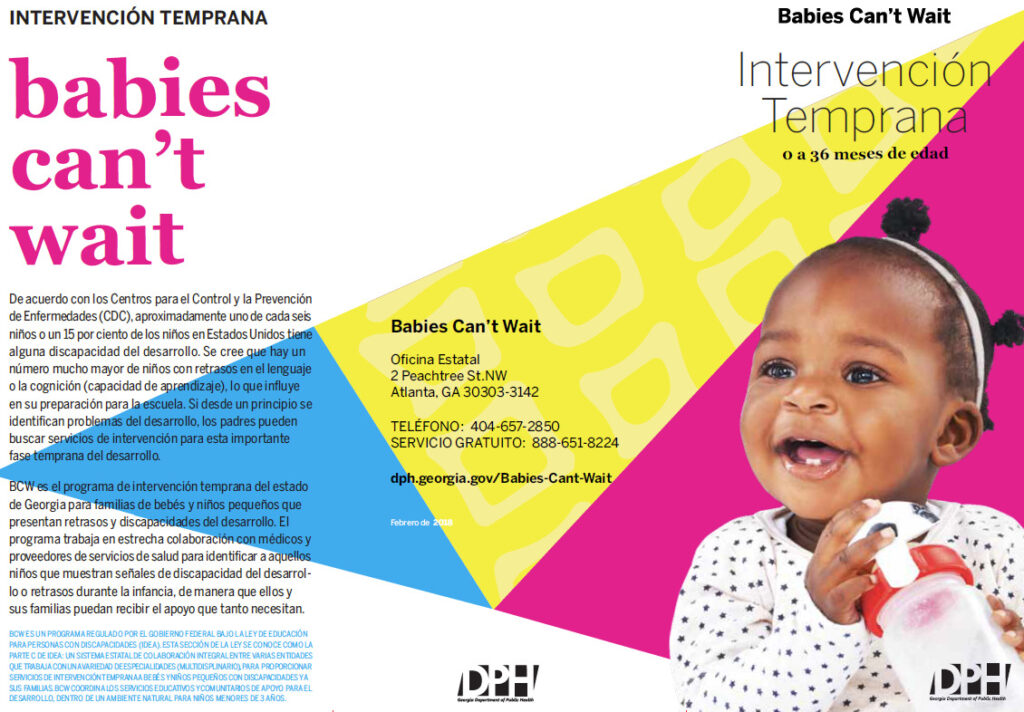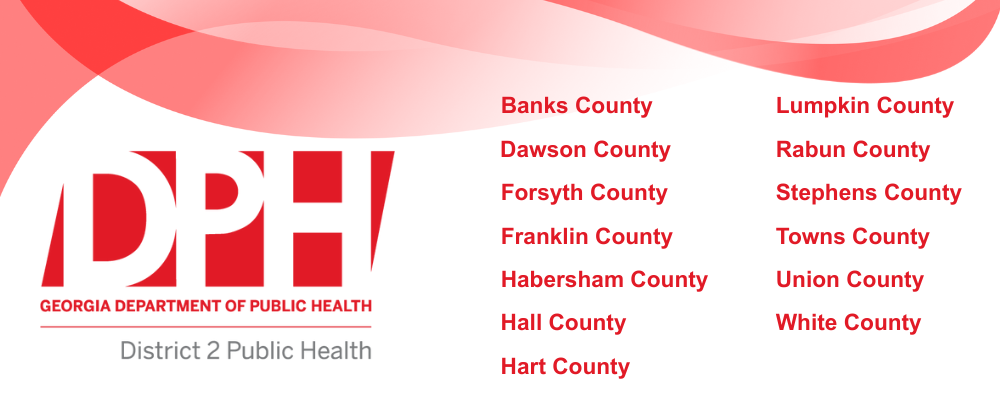
Babies Can’t Wait is a program in Georgia that serves families of very young children, from birth to age three, who have disabilities or significant developmental delays. This program was first implemented in 1987 and is administered by the Georgia Department of Human Resources, Division of Public Health.
Services are available in all eighteen Public Health Districts located throughout Georgia to serve families residing in every county. District 2 Public Health serves families in Banks, Dawson, Hall, Forsyth, Franklin, Habersham, Hart, Lumpkin, Rabun, Stephens, Towns, Union and White counties, with an office located in Gainesville.
Child Health Referral Form (NEW!)
We are excited to share that the new Child Health Referral Form (an updated version of the previous Children 1st Referral Form) is live! It’s available in English and Spanish by clicking on the links. The form is also available on the Georgia DPH website at https://dph.georgia.gov/children1st.


Early intervention helps children reach their potential!
EARLY DETECTION: Nearly half of a child’s developmental growth occurs in the first few years of life. Studies show that early intervention and family/caregiver support significantly increases a child’s ability to reach his or her developmental potential. Parents who adopt a “wait and see” attitude about possible delays risk having initially mild conditions become more severe as their child gets older.
SERVICES: Multidisciplinary evaluation to determine a child’s eligibility for the Babies Can’t Wait program, and assessments to determine the scope of supports needed.
Service coordination to assist the child’s family and other professionals in developing an Individualized Family Service Plan (IFSP), which establishes family/child outcomes, and the supports needed to meet these outcomes and helps track progress to meeting them.
Assistance in accessing early intervention resources and supports identified in the child’s Individualized Family Service Plan.
PROVIDERS: Babies Can’t Wait service providers are specialists in their respective fields who must meet high standards in academic degrees, experience and training. Service coordinators, educators, therapists and other persons providing early intervention services must meet all Georgia educational and licensure requirements. Ongoing training and continuing education are also required. Below is a partial listing of what Part C of IDEA requires participating state programs to make available (as appropriate) for each individual child and family (and according to the IFSP)
• Assistive technology
• Audiology
• Family training, counseling and home visits
• Nutrition counseling
• Occupational therapy
• Physical therapy
• Psychological services
• Service coordination
• Social work services
• Special instruction
• Speech language therapy
GUIDANCE: The Babies Can’t Wait program coaches parents on how to support their child’s development and participation in typical daily routines and activities; provides information to families about topics of interest; and links parents to support groups and informational resources.
ELIGIBILITY: Children from birth to their third birthday, regardless of parent income, are eligible for BCW in two ways:
1. The child is diagnosed with a mental or physical condition which is associated with developmental delay, including, but not limited to: Down Syndrome, Fetal Alcohol Syndrome, Spina Bifida, Cerebral Palsy and Autism. For entire list of conditions see our developmental checklist.
2. The child is experiencing significant developmental delays confirmed in an evaluation conducted by a qualified team of Babies Can’t Wait-approved professionals.
COST: Babies Can’t Wait provides evaluation at no cost to families to determine a child’s eligibility for the program and the scope of services needed. Service coordination and procedures to assure parental rights are also at no cost to families. Services noted on the IFSP which are needed to support IFSP outcomes are funded through insurance and/or Medicaid, family cost participation, Babies Can’t Wait funds, or a combination of the above.
GETTING STARTED: Anyone can refer a child to Babies Can’t Wait. Residents of Banks, Dawson, Hall, Forsyth, Franklin, Habersham, Hart Lumpkin, Rabun, Stephens, Towns, Union and White counties can contact their district office at 1-800-204-8731 for information.
Or you can call 1-800-229-2038 to learn more about resources that are available to you.
You can also visit the Babies Can’t Wait website at: https://dph.georgia.gov/babies-cant-wait
